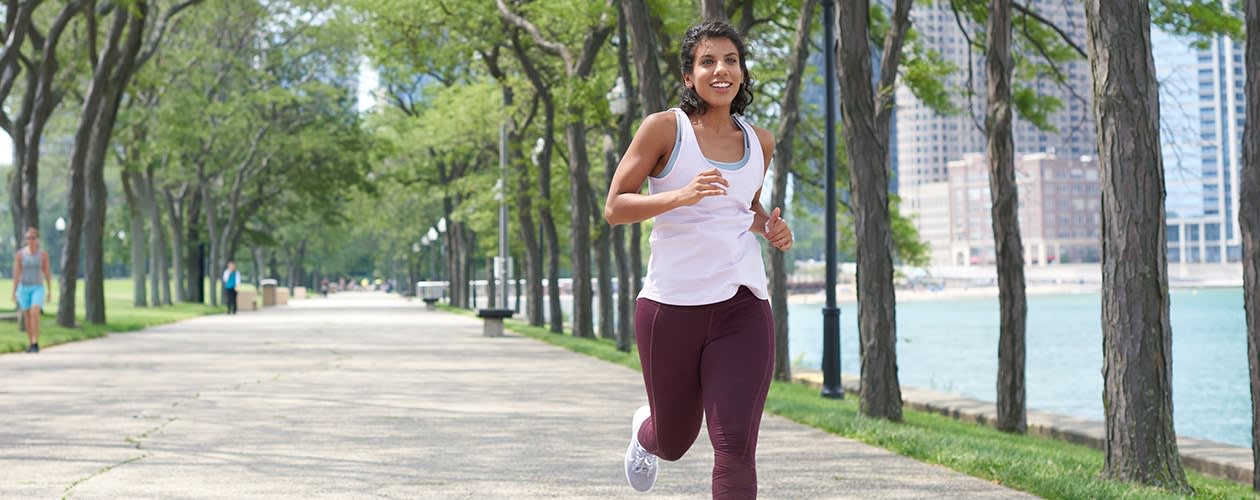6 scientific health benefits of being outdoors


Boost your health with the outdoors
If you’ve started to think you spend a lot of time looking at a screen – whether it’s your phone, computer or TV – then you’re not alone. A recent survey found that Australians spend almost six hours a day indoors connected to the internet, including 99 minutes on social media. According to psychologist Gemma Cribb, our continuous connection to technology could mean we become overstimulated and less likely to know how to ‘switch off’ and wind down. “When we are always available to be contacted we struggle to compartmentalise,” says Cribb, “and therefore our stress levels increase, our concentration decreases and – because we are never fully present in them – we can feel a loss of joy and pleasure in our daily activities.”
Spending time outdoors is one way to counteract this. As well as a way to feel rejuvenated, heading outside into the fresh air also activates the parasympathetic nervous system as well as the ‘rest and relax’ response. Studies show that being in nature for as little as 30 minutes a week may have a positive health effect on both our bodies and minds.
1. Reduces stress
Apart from getting a vitamin D hit and the benefits of movement, spending time in the great outdoors may also reduce your stress levels. A study from the University of Michigan found that group walks in nature are linked to lower levels of perceived stress, as well as depression. While a study from earlier this year confirmed that spending time outdoors may also lower your heart rate and blood pressure. Gardening, in particular, has been linked to lower levels of cortisol (the stress hormone) as well as improvements in mood.
2. Increases your immunity
A study from the University of Illinois found that there is a strong connection between being outdoors and increased immunity to a range of diseases. Researchers linked this to the fact that in nature our body switches to the ‘rest and digest’ mode, which is the opposite of the ‘fight or flight’ mode, where our immune system is virtually shut down. Another study suggests that by ‘forest bathing’ (the Japanese term for spending time in nature), we could improve the activity of our white blood cells for up to 30 days.
3. Builds creativity
Need a flash of inspiration? Spending a few days hiking in the bush could be the answer. A 2012 study gave hikers a series of tasks to test their creative thinking abilities. They were then retested after four days of trekking in nature and their performance improved by 50 per cent. Being outdoors is especially beneficial to children’s creativity. A study found that kids who spent time in an outdoor classroom were more open to learning and showed more creative thinking.
4. Sharpens your focus
A short walk in nature has been found to help focus the mind and boost short-term memory. An early study found that when researchers took a group of students and asked a third of them to walk in nature, a third to walk in the city and the remaining third to just relax, the group who spent time outdoors in nature produced the best result from the groups when it came to a proofreading task after. In fact, a study published in the Journal of Environmental Psychology found that just looking at images of nature can help restore mental attention – although when they did this, participants in the study didn’t gain the additional health benefits of actually being in nature.
5. Helps you sleep better
One study found that camping outdoors for a weekend was enough time to help reset our natural sleep cycle. Researchers found that our modern world of getting up early with artificial light, computer screens and going to sleep later at night generally puts our internal clock back two hours. This may lead to moodiness, poor sleep habits and a greater chance of being overweight. However, after a weekend camping, our internal clocks are restored to their normal setting, improving our quality and quantity of sleep.
6. Increases your energy
Just half an hour a day spent outside may motivate you to become more physically active. And, exercises performed outdoors have been proven to pack more health benefits, too. A study showed that, in addition to improvements in muscle movement, simply being outside in the daylight has been shown to increase energy use, potentially resulting in weight loss.
5 ways to spend time outside
1. Get into gardening
If you don’t have a garden, ask a friend who has one if they need help or volunteer for a conservation group.
2. Eat your meals outside
Take your breakfast into your garden or onto your balcony, eat lunch in the park (not at your desk), and make a picnic for dinner or visit your favourite park and have a barbeque.
3. Shop at farmers markets
These tend to be outdoor events so you can do your shopping and get a fresh air hit at the same time!
4. Create a photo bucket list
Write a list of photos you’d like to take – things like landmarks, animals or scenes (like someone swimming in a creek). Then spend your weekends on a photo hunt.
5. Start or join a walking group
Find some friends and go on regular walking excursions. Each week one person decides on the ‘walk of the week’.